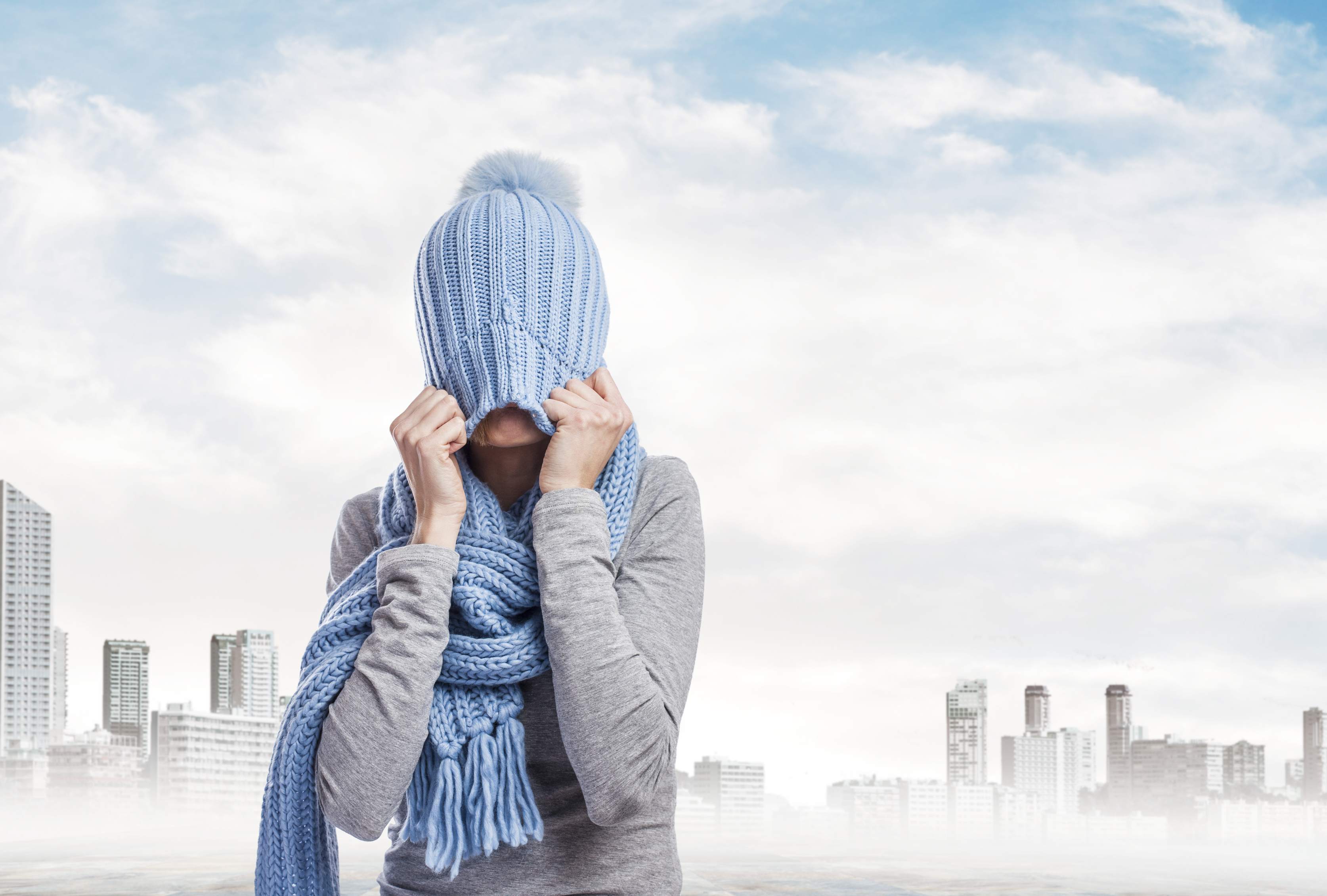
Winter may soften the harsh glare of summer, but for your skin, it presents a brutal double challenge: the cold, dry air that weakens the natural moisture barrier, combined with a surge in invisible, damaging air pollutants.
This combination—dubbed a ‘double burden’ by dermatologists—strips the skin of essential lipids, creating micro-cracks where fine particulate matter (PM2.5) settles. The result? Accelerated aging, inflammation, dullness, and increased sensitivity. Dr Rekha Singh, Chief Medical Officer at Oliva Clinics, India, warns that pollution particles are "20 times smaller than your pores," making a focused, protective routine absolutely non-negotiable this season.
Why does pollution hit harder when the temperature drops? Dr Ruben Bhasin Passi, Consultant Dermatology at CK Birla Hospital, Gurugam, explains the vicious cycle:
Barrier Breakdown: Cold air causes rapid moisture loss, leaving the skin barrier compromised.
Free Radical Attack: Pollutants generate free radicals that break down collagen, speeding up dullness and pigmentation.
Sensitivity Spike: For those with conditions like eczema or dermatitis, the fragility of the skin barrier is worsened, triggering inflammation, redness, and irritation.
The Unseen Threat: The combination leads to extreme dryness, increased sensitivity, and clogged pores, manifesting as flakes, tightness, and winter breakouts.
Don't miss: Top 8 Hydrating Serums To Beat Winter Dryness

To create a protective shield against the winter smog, your routine must be gentle yet meticulously structured. According to Dr Nirupama Parwanda, Founder of Zolie Skin Clinic, Delhi, focus on these four essential actions: cleanse, nourish, protect, and repair.
Gentle Cleanse: Start with a mild, pH-balanced cleanser to remove overnight oil and impurities without stripping natural moisture.
Antioxidant Serum: This is your primary defense. Apply a serum rich in Vitamin C or Niacinamide to neutralise free radicals from pollution and reinforce the skin barrier.
Hydrating Moisturiser: Seal the deal with a cream or gel containing Ceramides or Hyaluronic Acid to lock water into the skin, preventing transepidermal water loss.
Broad-Spectrum Sunscreen: Non-negotiable, even on cloudy days. UV rays accelerate pollution damage, so a broad-spectrum SPF is essential to guard the barrier.
Double Cleanse: First, use an oil-based cleanser to dissolve makeup, sunscreen, and the day's pollution particles. Follow with a gentle, water-based cleanser to deep-cleanse the pores.
Repair Serum: Apply a hydrating or barrier-repairing serum (look for Peptides or Panthenol) to replace moisture lost during the day.
Rich Moisturiser/Sleeping Mask: Finish with a thicker cream or mask, ideally with ingredients like Squalane or Shea Butter, to support overnight healing and deep repair.
Gentle Exfoliation: Once or twice a week, use mild acids (Lactic Acid or PHAs) to gently remove dullness caused by accumulated pollutants without compromising the delicate winter barrier.
Don't miss: Why You Should Try The Skincare Sandwich Method This Winter Season

Select ingredients that perform dual duty, fighting pollution while hydrating the skin:
Purpose |
Key Ingredient |
Benefits |
Pollution Defense |
Vitamin C & Niacinamide |
Neutralises free radicals and reinforces the barrier. |
Green Tea Extract & Resveratrol |
Antioxidant defense and calming properties. |
|
Deep Hydration |
Hyaluronic Acid & Glycerin |
Draws and holds moisture to keep skin plump. |
Barrier Repair |
Ceramides & Squalane |
Rebuilds the protective lipid layer and blocks moisture loss. |
Soothing |
Centella Asiatica (Cica) & Aloe Vera |
Reduces pollution-triggered redness and irritation. |
Maintaining consistency and mindful habits is as important as the products you use. Dr Passi shares essential behavioural tips:
Avoid Hot Water: Hot water strips natural oils, worsening dryness and leaving the skin vulnerable to pollutants. Use only lukewarm water.
Don't Overwash: Excessive cleansing compromises the barrier. Stick to your morning and night routine.
Physical Shield: When outdoors, cover your face with a scarf or mask to reduce direct exposure to particulate matter.
Internal Hydration: Drink enough water and include healthy fats like Omega-3s in your diet. Consider using an indoor humidifier.
Be Gentle: Avoid harsh scrubs, alcohol-based toners, and strong retinoids if your skin feels irritated. Introduce new products slowly and patch test them during winter.
Use Non-Comedogenic Products: If you are acne-prone, ensure all products are non-comedogenic to prevent breakouts caused by pollution residue clogging pores.
Image courtesy: Freepik
For more such stories, stay tuned to HerZindagi.
Also watch this video
Herzindagi video
Our aim is to provide accurate, safe and expert verified information through our articles and social media handles. The remedies, advice and tips mentioned here are for general information only. Please consult your expert before trying any kind of health, beauty, life hacks or astrology related tips. For any feedback or complaint, contact us at compliant_gro@jagrannewmedia.com.